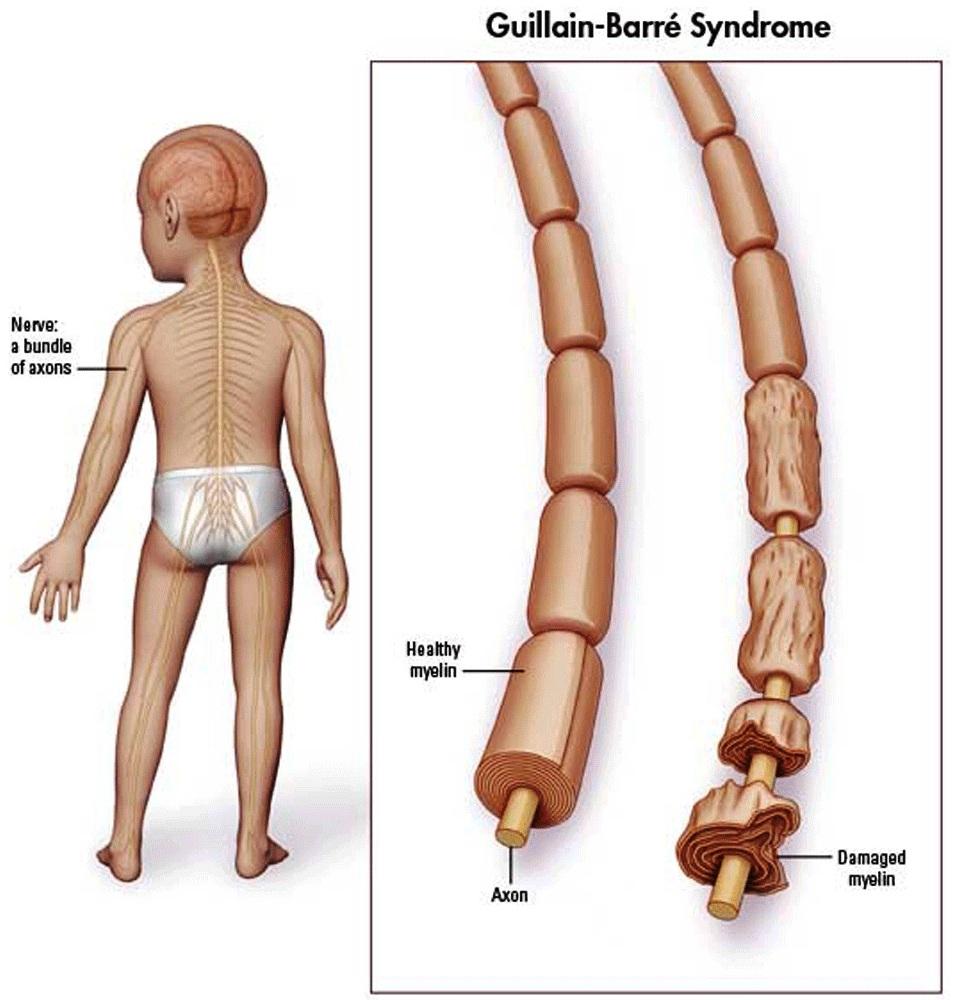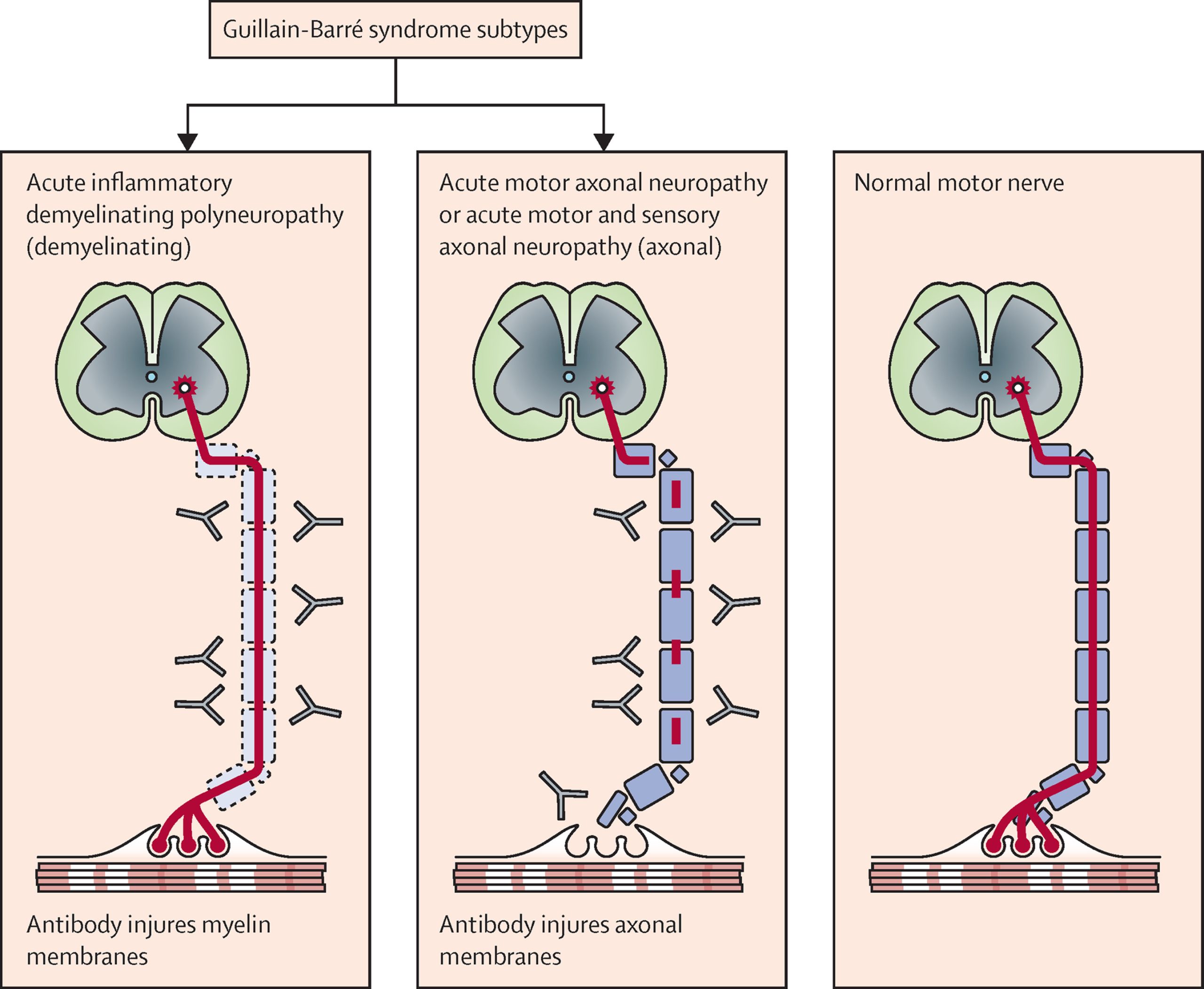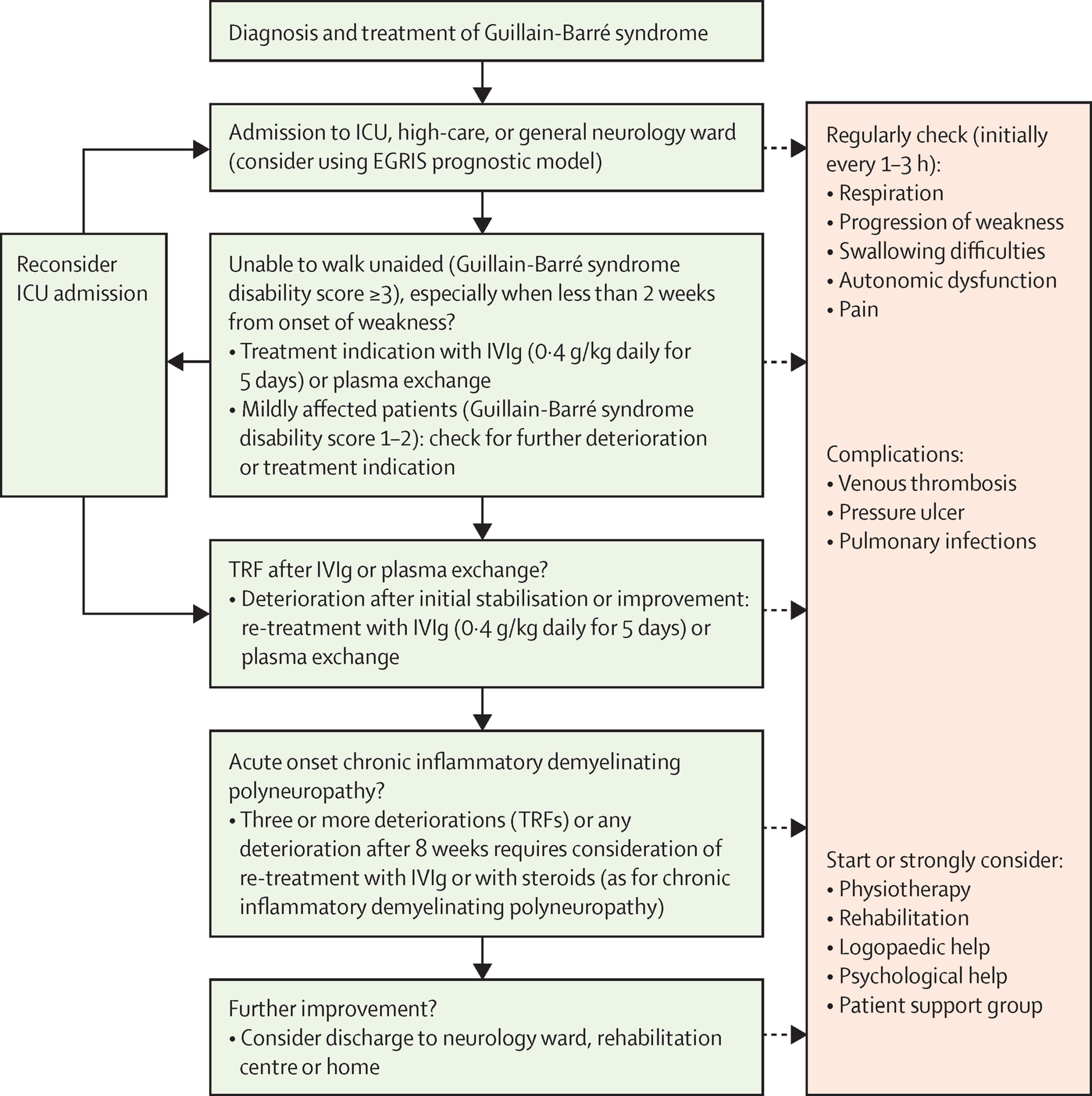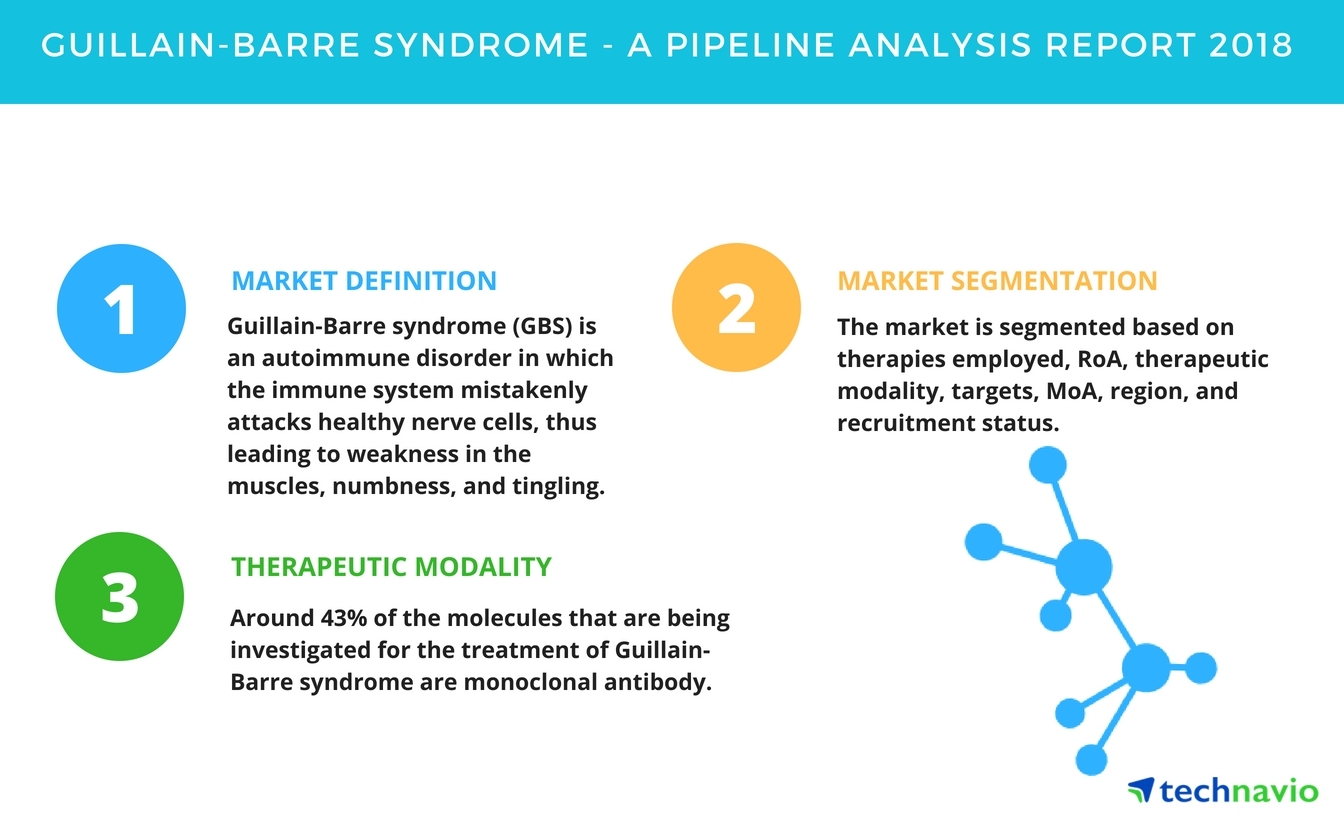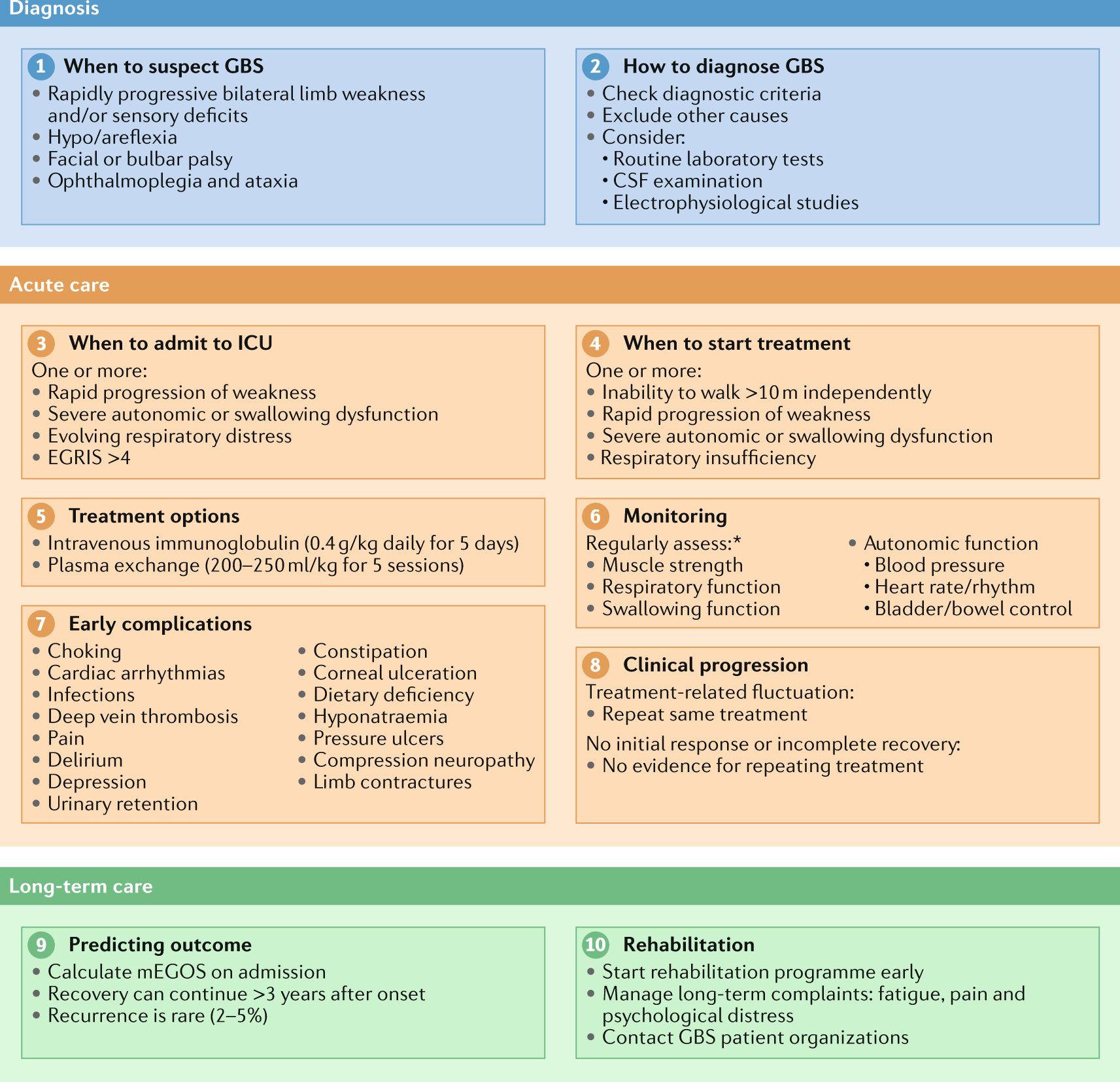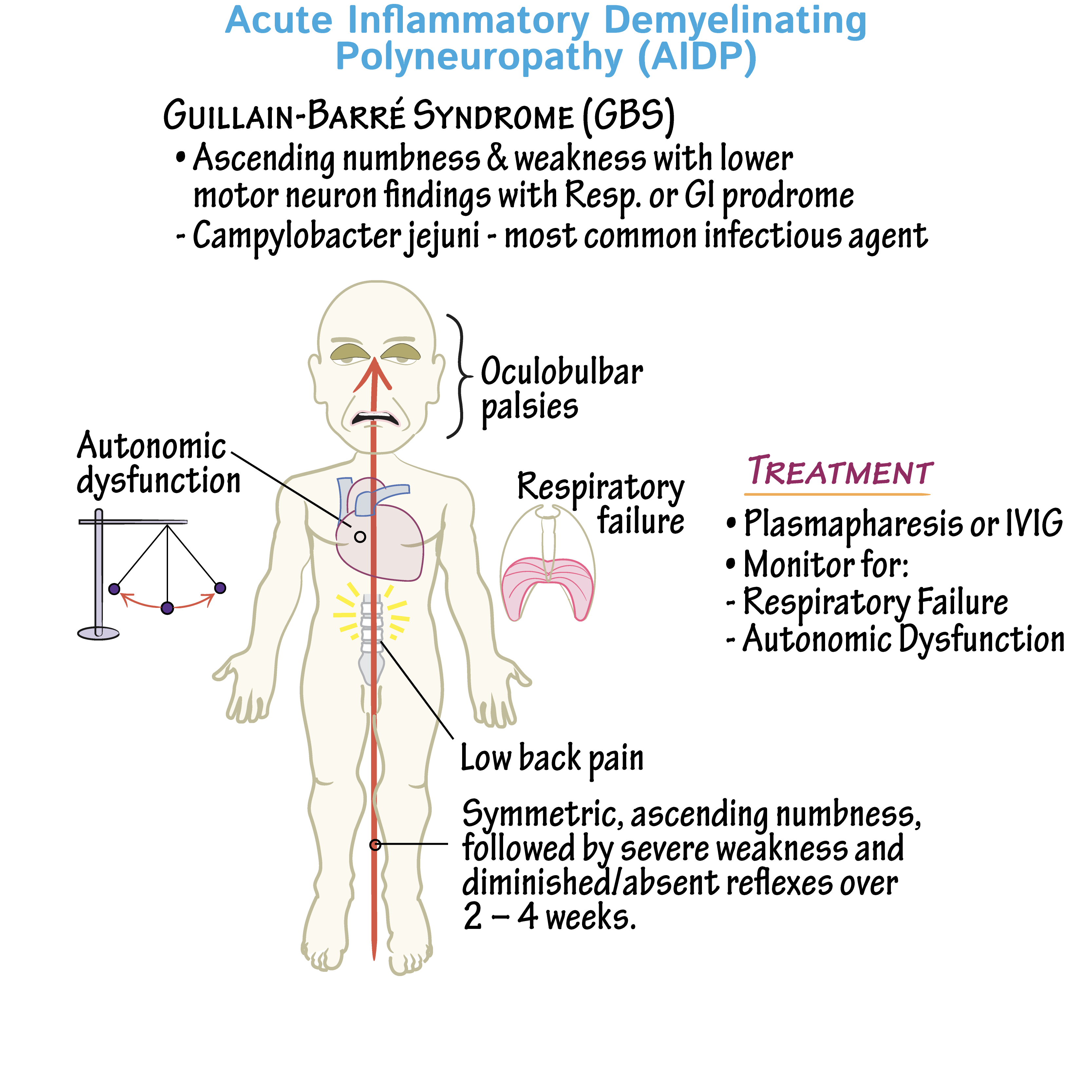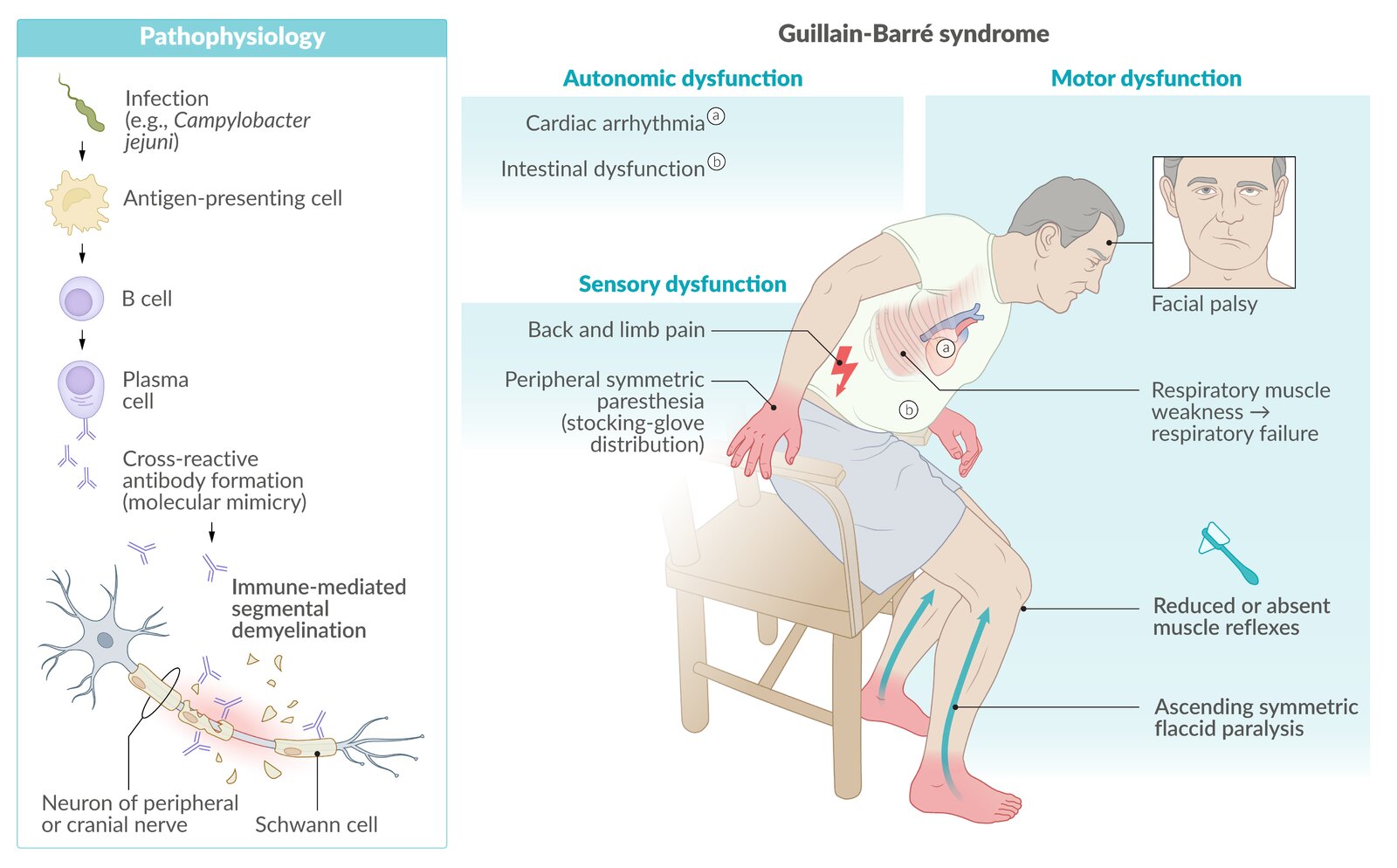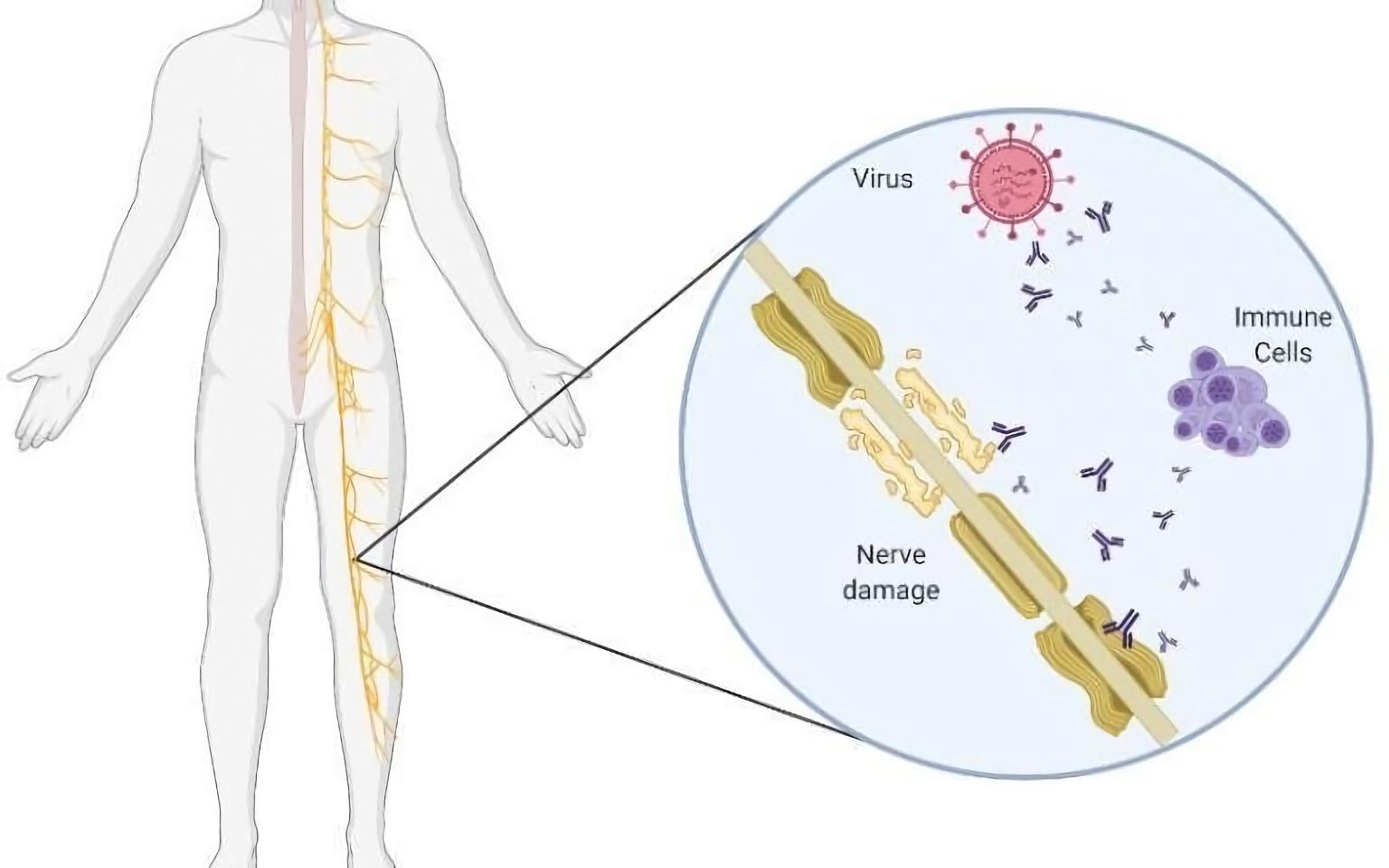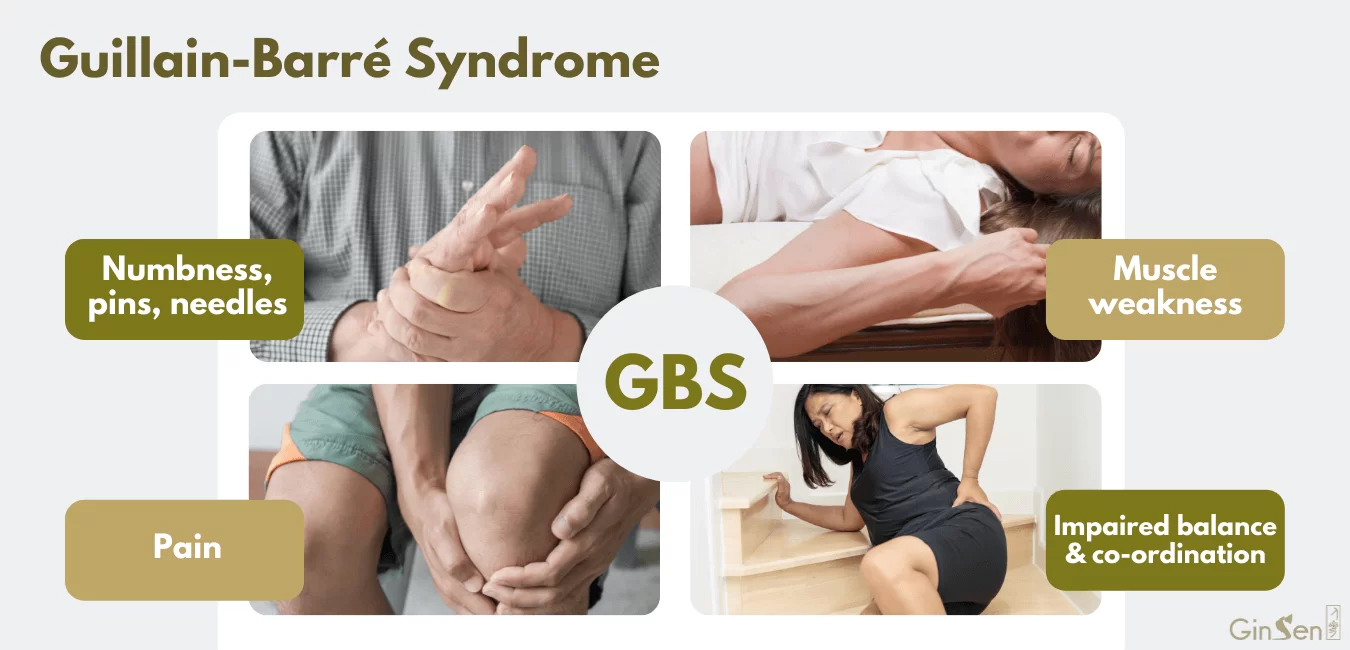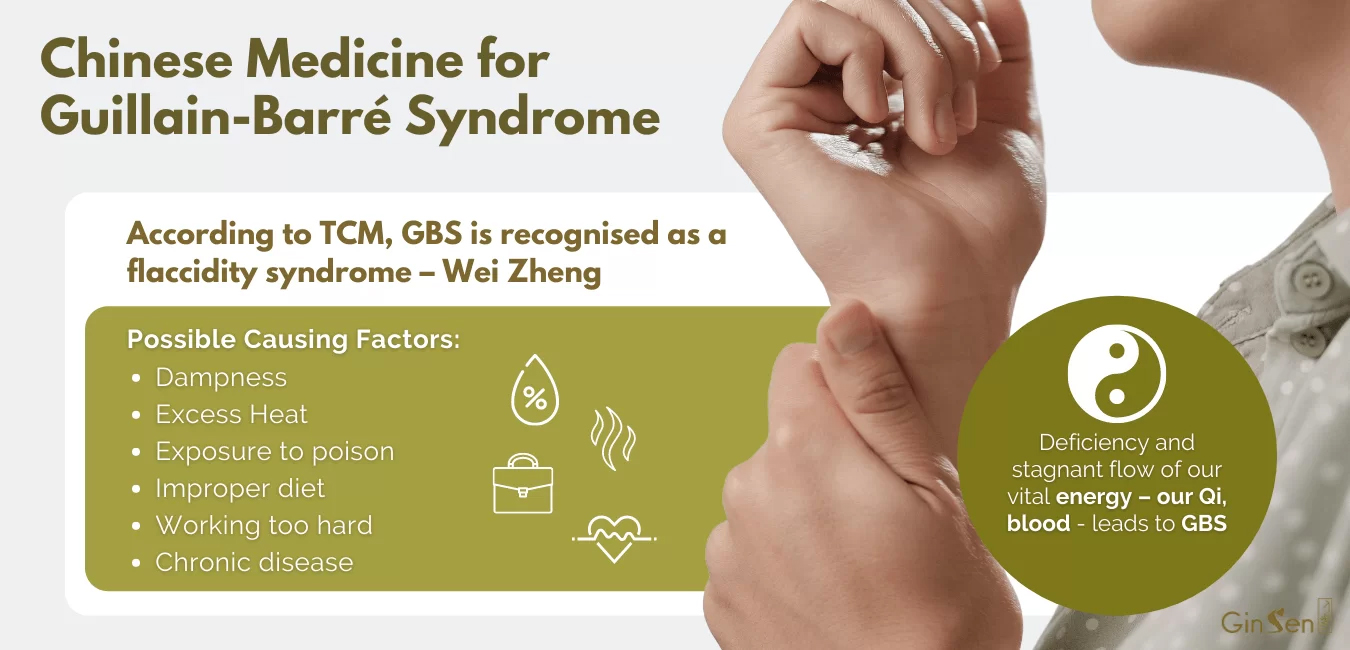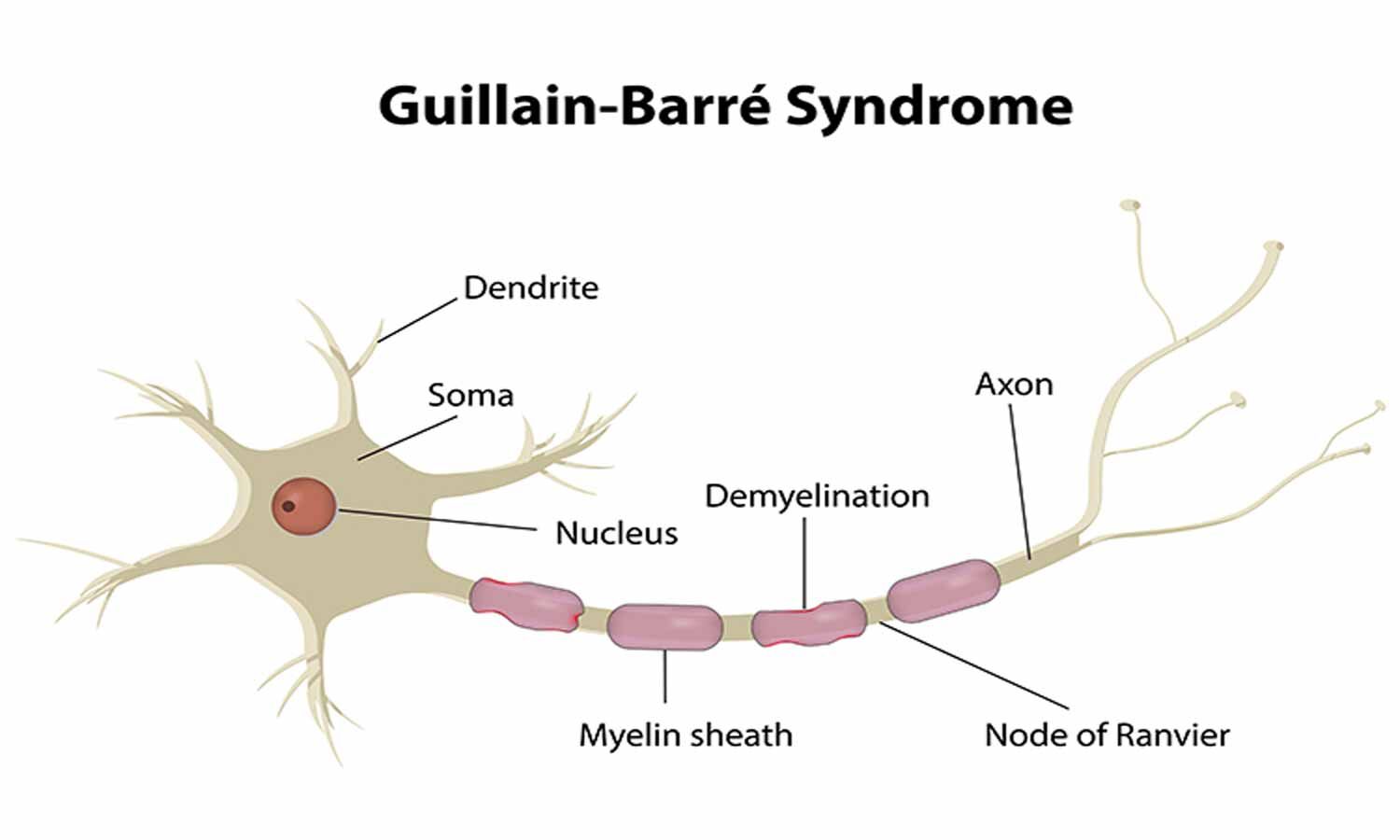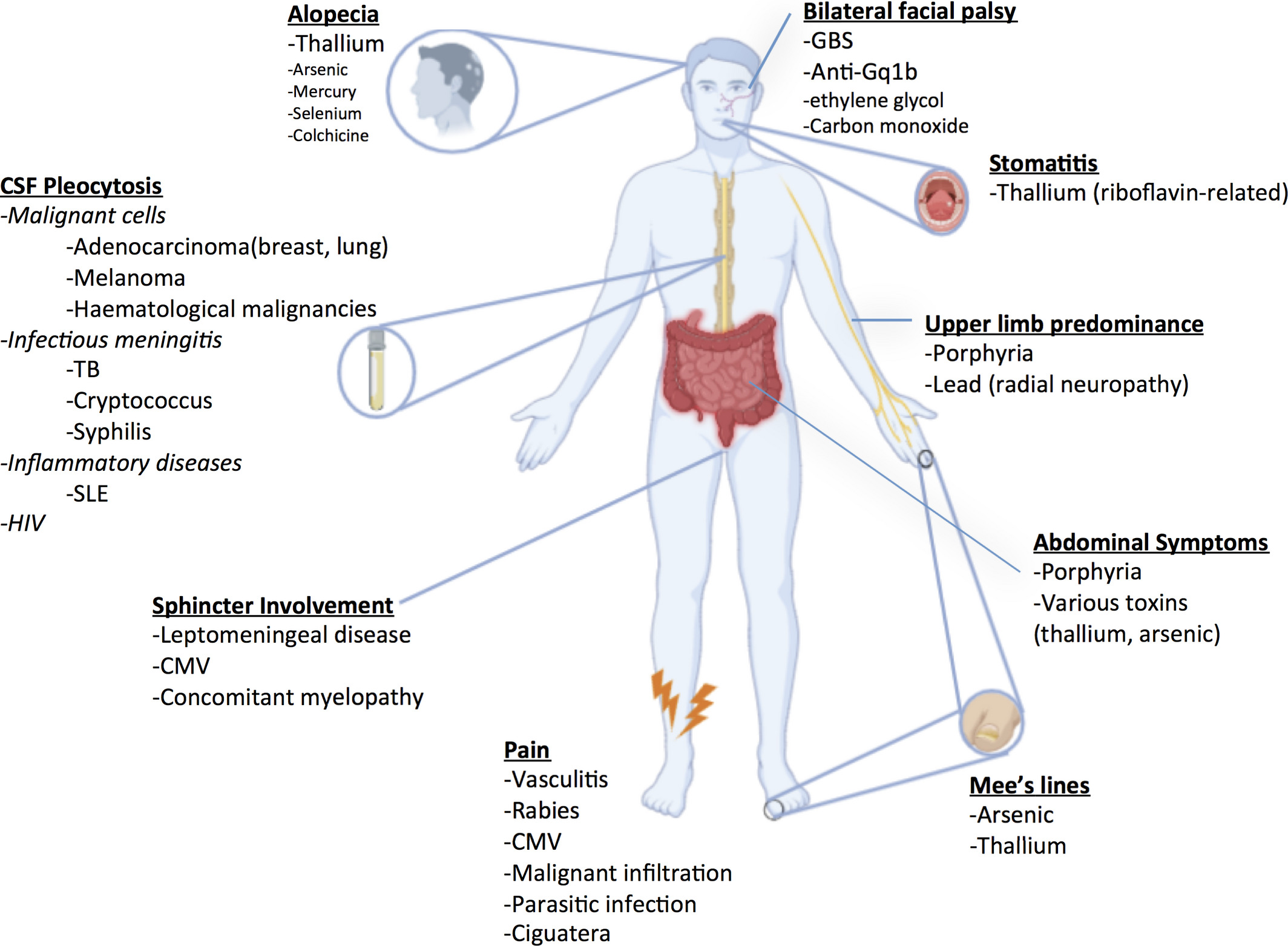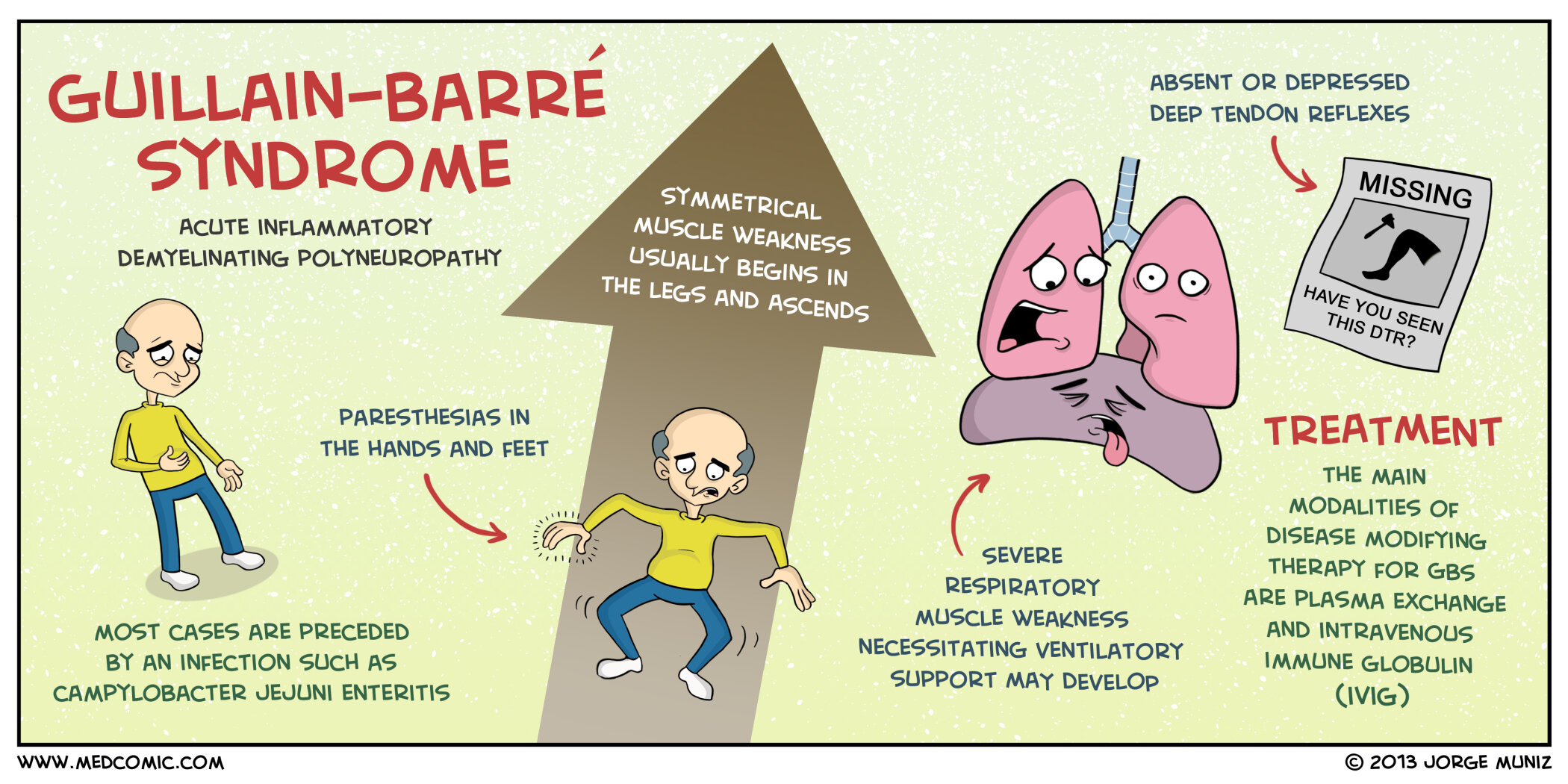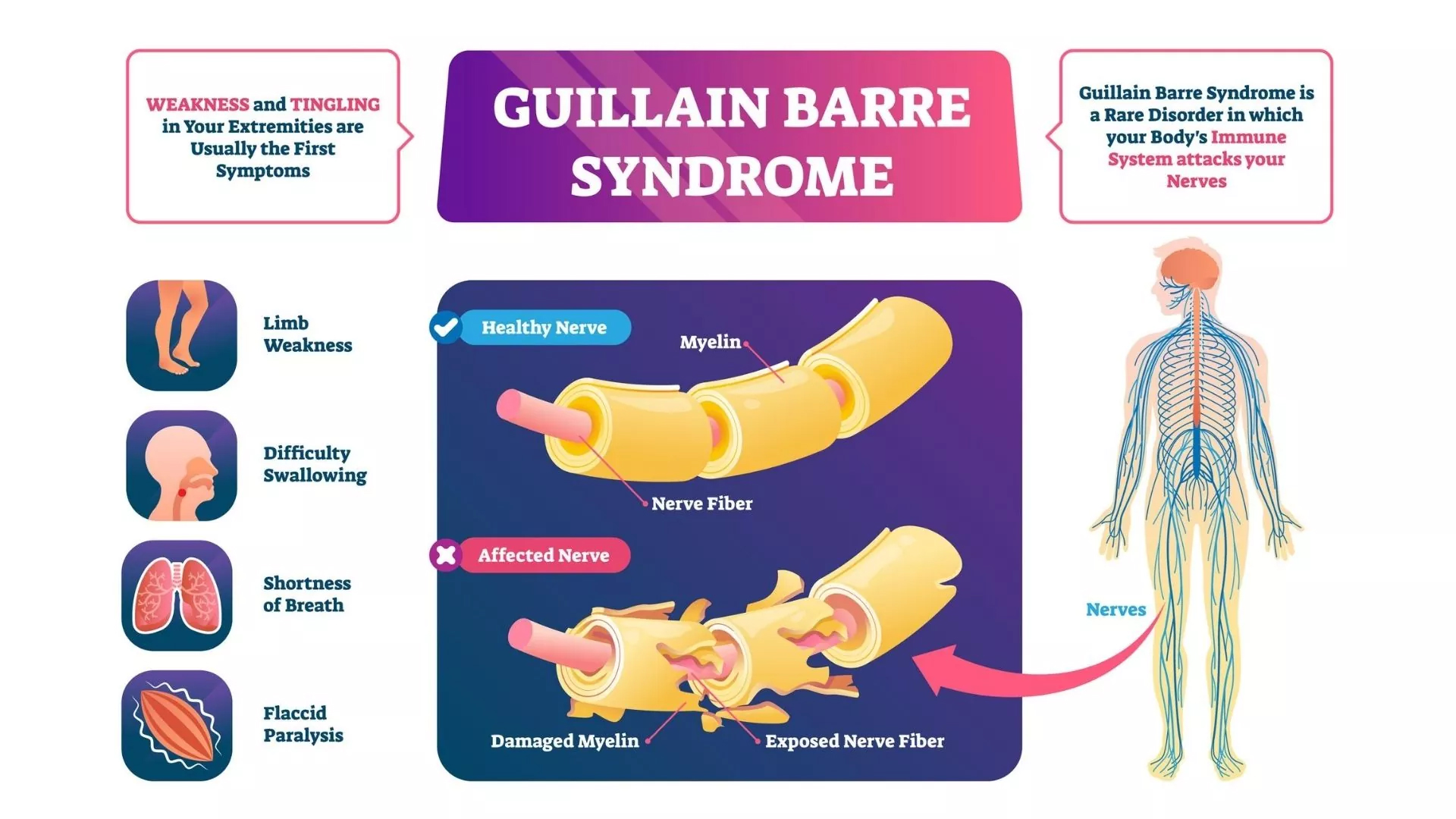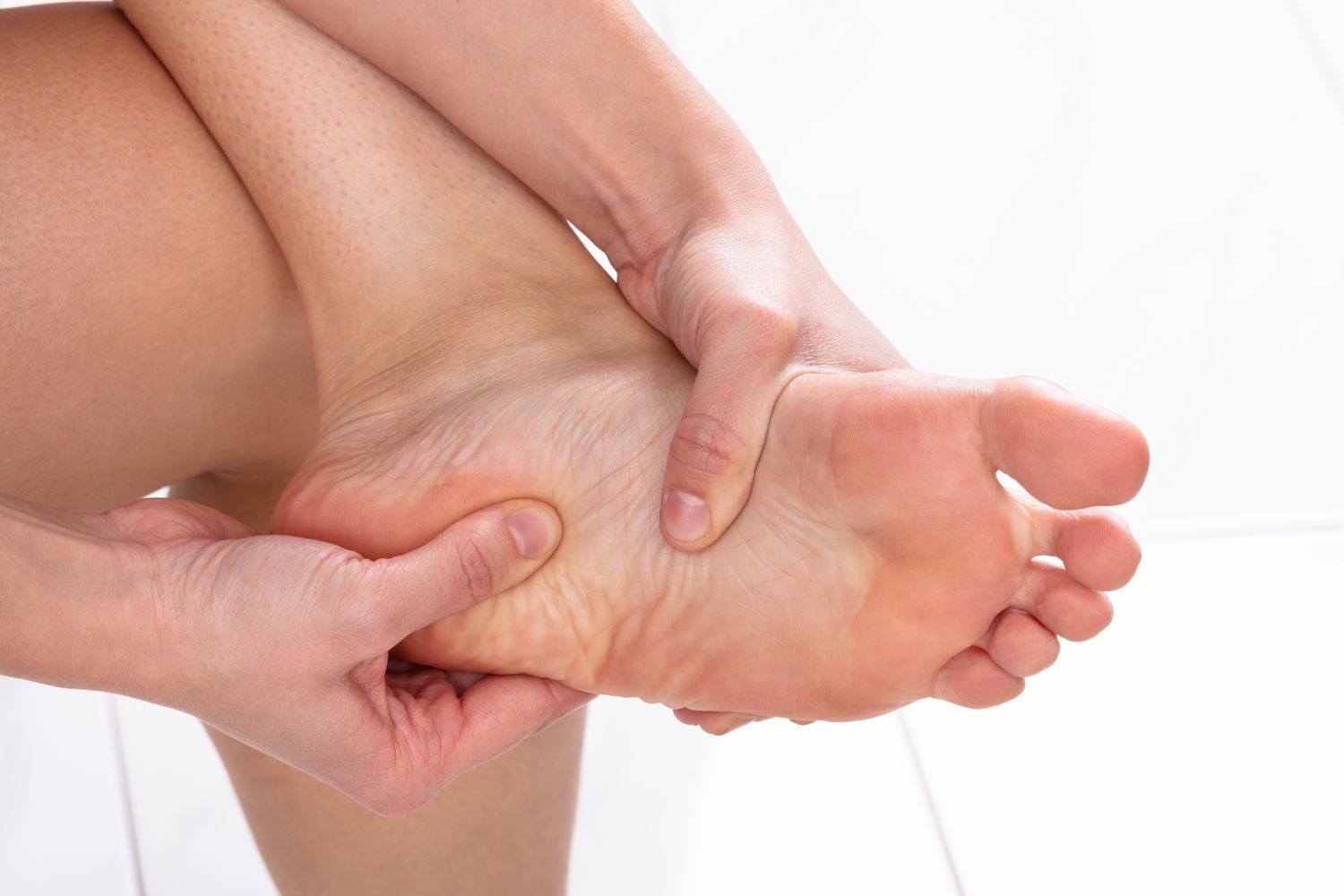
What is Guillain-Barre syndrome?
Guillain-Barre syndrome (pronounced ghee-yan bah-ray) is a rare illness in which antibodies and immune cells in your body’s immune system attack the nerves connecting your brain and spinal cord with the rest of your body. This causes weakness, numbness or paralysis. When the immune system attacks the body, it is called an autoimmune condition. You may need treatment in hospital for some time, but most people with Guillain-Barre syndrome recover well.
What are the symptoms of Guillain-Barre syndrome?
Guillain-Barre syndrome can start in many different ways. It usually begins with tingling or weakness in your legs that may spread to your upper body. In severe illness, symptoms can lead to almost total paralysis.
Other signs and symptoms may include:
- difficulty moving (for example, walking or moving your eyes or face)
- pain
- difficulty controlling your bladder or bowels
- a fast heart rate
- low or high blood pressure
- difficulty breathing or swallowing
- blurred vision
What causes Guillain-Barre syndrome?
The exact cause of Guillain-Barre syndrome is not known, but it usually starts after an infection. Occasionally, it is triggered by surgery.
How is Guillain-Barre syndrome diagnosed?
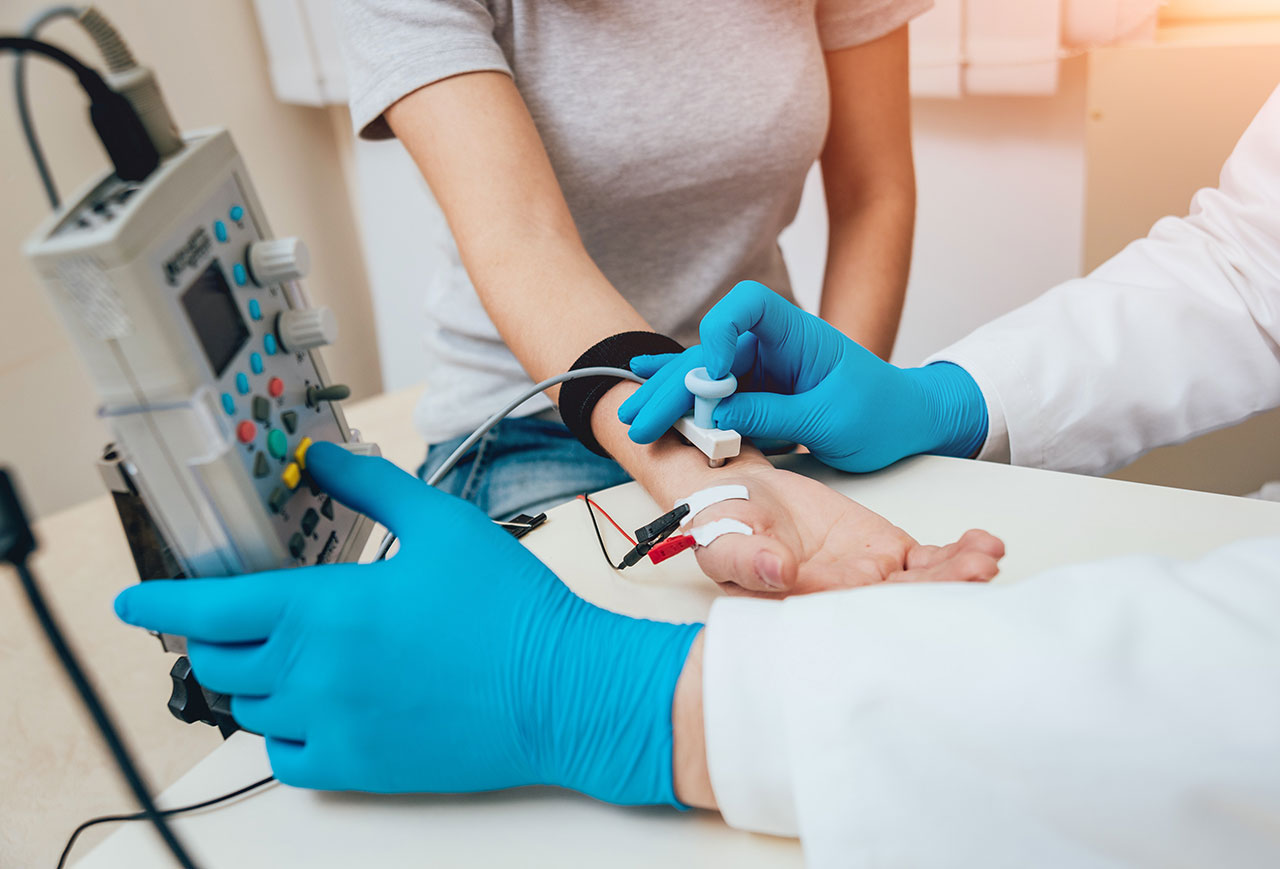
Your doctor will talk to you and examine you if they think you may have Guillain-Barre syndrome. You may need to see a neurologist and have tests to see how well your nerves are working. You may also need a lumbar puncture, which involves checking the fluid around your spine and brain with a thin needle.
How is Guillain-Barre syndrome treated?
In the early stages, you usually need to be in hospital so doctors can monitor your breathing. You may need to be on a ventilator in an intensive care unit (ICU) to help you breathe.
With time, you usually improve gradually. You are likely to be walking again within 6 months.
Guillain-Barre syndrome can be treated with:
- plasma exchange, which involves removing part of your blood and replacing it with plasma from the blood bank
- intravenous (IV) immunoglobulin therapy — using antibodies from blood donors to alter your abnormal immune response
- medicines to relieve your pain and prevent blood clots
- physiotherapy
How long will I have Guillain-Barre syndrome?
Most patients make a full recovery from Guillain-Barre syndrome. Even if you were paralysed or needed a ventilator, you are likely to recover within the first year after symptoms started. Some people have symptoms for life.
